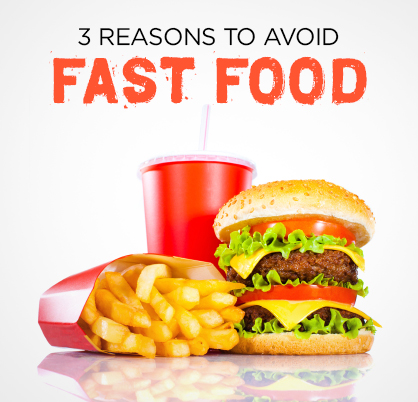3 Green Reasons to Skip the Fast Food
Fast food may be convenient and certainly appetizing when you are on the go. But is it convenient for the health of our environment? A $170 billion industry, fast food restaurants prioritize turning a quick buck over the needs of the planet, taking a huge toll on the environment. Many are familiar with the health reasons for avoiding fast food. Here are the reasons to eschew those mass-produced hamburgers and fries not for the sake of your waistline but the sake of our planet.
Packaging
Fast food chains tend to go wild on the packaging. Each and every part of your meal is usually individually wrapped, from the sandwich container to the straw. Much of this packaging winds up in the trash and not the recycle bin. Not even 35 percent of fast food restaurants’ garbage is diverted from landfills. Most of the diverted waste is cardboard; almost no food packaging and plastic is diverted from landfills. Between the bags, wrappers, napkins, silverware, boxes, cups and more, fast food packaging has become the top source of urban litter in the United States. Each year, millions of acres of forest are destroyed in order to make fast food packaging and waste travels from gutters and storm drains to the ocean. Plus, restaurants run through an incredible amount of paper and plastic in-house, with items that come individually packaged in cardboard boxes or plastic, that, for the most part, land up in the waste stream.
Transportation
Like a great deal of our food, your burger and fries have likely travelled a great distance to end up on your tray. Fast food joints spend endless energy on wasteful transportation and distribution processes. The average food items travels 1,300 miles in the United States from the field to the plate and fast food well contributes to these miles. Few chains, if any, have jumped on board the local bandwagon. This needless transportation wastes energy, with trucks and ships that spew CO2 and mostly run on fossil fuels, leaving a huge carbon footprint in their wake. And meat consumption contributes to global warming. To produce simply half a pound of hamburger meat, as much greenhouse gas is released into the atmosphere as driving a car nearly 10 miles.
Factory Farms
To generate their cheap meat, fast food restaurants rely on factory farms, huge agricultural production centers in which large amounts of animals are stuffed into small areas and fed endless hormones to promote growth. This process is not just cruel for the animals, but also requires vast amounts of food, energy and water. According to a report from the United Nations’ Food and Agriculture Organization, the livestock industry, especially factory farming, is one of the most major two or three contributors to the most serious environmental problems that threaten our future. Factory farms expend a great deal of water, between watering the crops that provide animal feed to cleaning away the filth in the farms, transportation trucks and slaughterhouses. And the antibiotics and hormones fed to animals pollute our groundwater, as do the animal wastes and the pesticides used to spray feed crops.
Tagged in: food, green, sustainable, environment, eco-friendly,

LadyLUX



